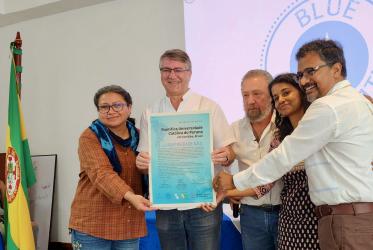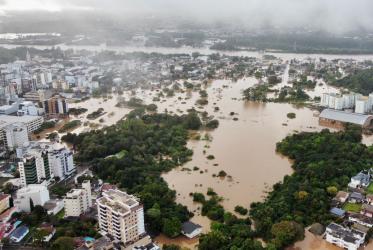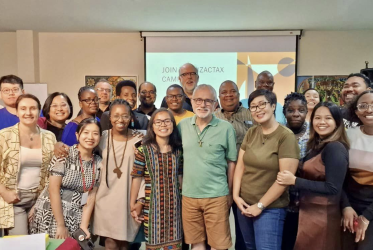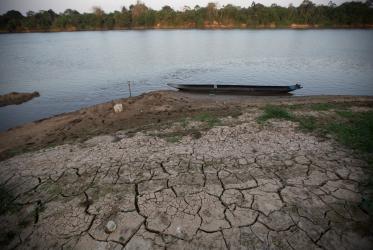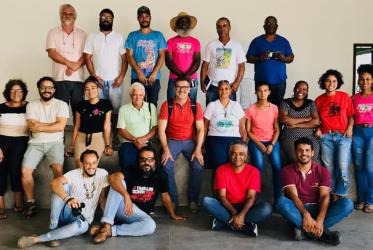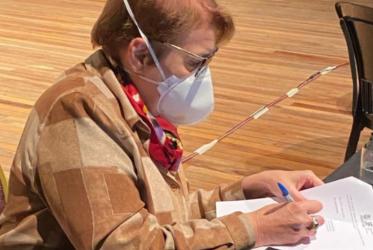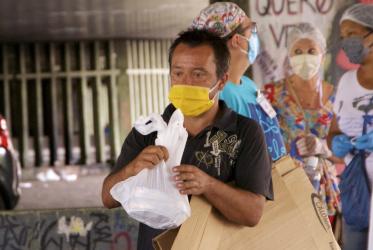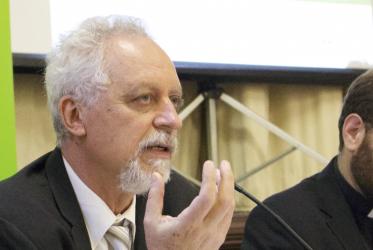Displaying 1 - 20 of 55
In wake of floods in Brazil, WCC expresses concern and solidarity
09 September 2023
GEM School explores how to make new economic world order a reality
08 September 2023
WCC stands in solidarity with victims of major flood in Brazil
17 February 2022
Brazilian ecumenical water network launched
29 July 2021
Pulling together for a living River Pardo
02 July 2021
WCC podcast deals with death and dying
15 December 2020
WCC condemns massacre of farmers in Philippines
12 April 2019
Interfaith Rainforest Initiative expands
12 February 2019
All pilgrim routes lead to COP24
11 December 2018
